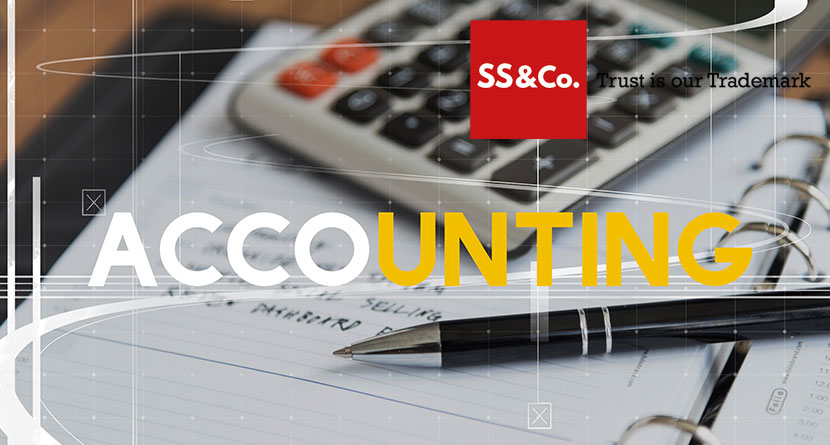To put it simply, cloud accounting refers to the replacement of traditional desktop software with online platforms for financial management, while the most significant advantage is the possibility of anywhere access through the internet. It keeps financial data on off-site servers, thus making collaboration and access through web browsers or mobile apps instantaneously. It means that the companies don’t have to buy software licenses for each workstation and also don’t have to worry about installing, maintaining, and upgrading the software. Besides, they get the plus points of regular updates, better protection, and connection with various other corporate apps.
For companies in Dubai and across the UAE, moving core finance to the cloud improves clarity, speeds up the decisions, and reduces the everyday drag of manual bookkeeping. If you are evaluating cloud accounting options, or looking for expert accounting and bookkeeping services, this guide explains exactly what you’ll get.
Why cloud accounting is imperative for UAE businesses
Dubai firms exist in such a fast-paced market crowded in multi-emirate operations, free zone rules, VAT compliance, and cross-border flows. Cloud accounting provides accurate books, shared access, and automated compliance. That means you won’t face last-minute surprises at the end of the month. You’ll also have quick answers ready whenever a bank, investor, or authority asks for details. In the UAE, more businesses are now switching to cloud accounting as part of the wider move toward digital finance and modern business systems.
Real cost and time savings
Switching to cloud accounting reduces IT overhead and cuts the time spent on repetitive tasks. You do not buy a server, you do not wrestle with backups, and you do not spend weeks on software upgrades. Instead you get continuous updates, automated reconciliations, and electronic invoicing that shortens the billing-to-cash cycle. These efficiencies are why many accounting teams pair cloud accounting with outsourced expert accounting and bookkeeping services to keep the books organized.
Access and collaboration
Cloud accounting provides you with an always accessible ledger. The entire collaboration of the team, accountants, and outside advisors can take place over the same dataset without the need for emailing spreadsheets or exchanging files. That access ease is of considerable importance especially for companies with remote staff, several sites, or finance partners in different locations. A 2024 industry survey found that remote access is among the top reasons small businesses move to cloud platforms.
Improved security and data residency
Security is the first question we hear from cautious owners. Modern cloud providers invest far more in security than a typical SME can afford. Encryption, multi-factor authentication, and regular penetration testing are standard. For Dubai-based businesses, providers are increasingly offering local data centres and hybrid options to meet regulatory and residency requirements. That balance between security and compliance makes cloud accounting a safe option when paired with expert accounting and bookkeeping services.
Real-time insight and better decision-making
Cloud accounting converts static monthly reports into a live dashboard. Real-time cash balances, ageing receivables, and rolling profit-and-loss views replace last month’s spreadsheet. That immediacy helps CEOs and owners make quick, evidence-based decisions, changing pricing, cutting discretionary costs, or advancing a capital plan with confidence. Advisory-focused firms often layer forecasting and scenario planning on top of cloud accounting to turn numbers into strategy and to make the platform an active planning tool.
Automation reduces human error

Manual data entry slows business growth. Cloud accounting automation cuts typing errors, matches bank transactions automatically, and spots mistakes early. This means cleaner records, smoother audits, and faster month-end closing. Many companies use cloud accounting along with expert accounting and bookkeeping services to set up and monitor these automation rules properly.
VAT, compliance, and audit readiness
UAE VAT and other reporting obligations are simpler when your accounting lives in the cloud. Systems can automate VAT calculations, keep auditable trails, and produce the reports auditors and authorities expect. That lowers the stress around audits and reduces the time a business spends preparing returns. Outsourced finance teams provide the procedural discipline to ensure entries, filings, and reconciliations are kept up-to-date.
Connected systems and the modern finance network
Cloud accounting is very compatible with payment systems, POS tools, payroll, and banks. The connection eliminates double tasks and transmits sales transaction data directly to your accounts. This seamless integration for the likes of retailers, hotels, and tech companies in Dubai, not only facilitates clear payments but also ensures precise financial records.
Better cash flow management
Cloud accounting gives you real-time visibility into cash inflows and outflows, and modern systems surface weak points before they become urgent. When cash is visible, businesses can accelerate collections, renegotiate terms, or delay discretionary spending with less disruption. Expert accounting and bookkeeping services can use cloud data to run targeted collections campaigns and improve working capital without upsetting customer relationships.
Reduced risk and stronger controls
Cloud accounting gives you real-time visibility into cash inflows and outflows, and modern systems surface weak points before they become urgent. When cash is visible, businesses can accelerate collections, renegotiate terms, or delay discretionary spending with less disruption. The utilization of cloud data by expert accounting and bookkeeping services can lead to the execution of precise collections campaigns and enhancement of working capital, without causing any customer relationship disturbances.
Who should adopt cloud accounting first
Startups, companies with remote teams, retailers with POS integration, and businesses that use freelance accountants benefit quickly. Also, any firm that spends too much time on manual reconciliations or VAT filings will feel the relief. Many Dubai companies find it efficient to pair cloud accounting with expert accounting and bookkeeping services so the technology and the human process are aligned.
How to pick the right partner in Dubai
Choosing a cloud accounting partner is not only a matter of software but also of people. Select the providers who have a good command of the UAE VAT, the differences between free zone and mainland, and the payroll laws. Look for firms that offer implementation, training, and ongoing support; and that combine technical setup with the steady hand of expert accounting and bookkeeping services. A good partner will migrate your history, map your chart of accounts, and leave your team able to run the basics while they handle exceptions.
The cost question: is cloud accounting more expensive?
Cloud accounting often reduces total cost of ownership. Subscription software replaces large upfront licenses and the hidden costs of on-prem infrastructure. Businesses are often surprised to discover that the total cost of ownership (TCO) of their legacy systems is higher than that of cloud accounting, where the combination of time saved by automation and quicker closes is included. Besides, when you add the time saved, the combination of technology and process at a fixed price per month brings so much more value.
A practical first 90 days
In the first 90 days focus on migration, basic reconciliations, workflow automation, and staff training. Move bank feeds live, set up key automation rules, and run parallel reconciliations until the data stabilises. Use expert accounting and bookkeeping services for the heavy lifting so your team can learn without being swamped.
Closing thought
Cloud accounting has become a must-have for businesses in Dubai. It offers speed, security, and clear financial control. When paired with expert accounting and bookkeeping services, it turns software into a real business advantage. For companies that want to stay organised, make faster decisions, and stay compliant, the cloud is simply the best place for their finance to run.




